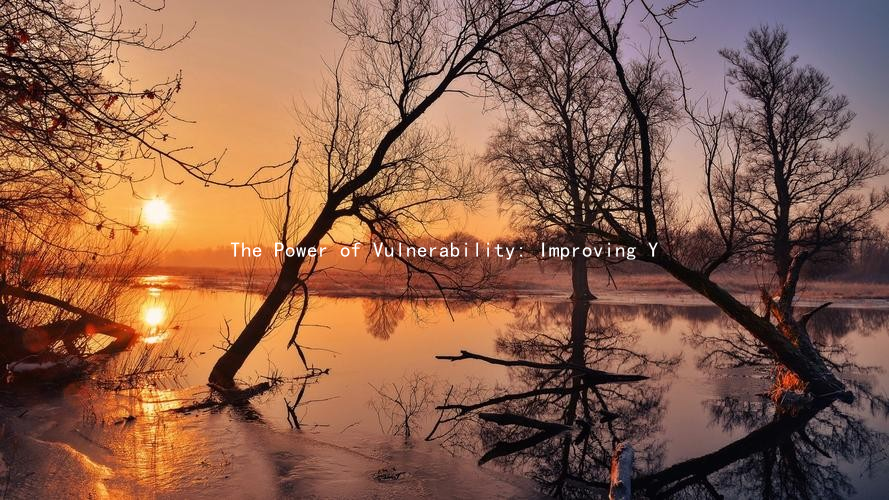The Power of Vulnerability: Improving Your Love Language with Social-Emotional Techniques
The Power of Vulnerability: Improving Your Love Language with Social-Emotional Techniques
In the intricate dance of love and relationships, vulnerability often emerges as a formidable force that can either fortify or fracture connections. When it comes to the language of love, understanding how to express our emotions and needs openly can foster deeper intimacy and trust. This article explores the power of vulnerability in improving love languages through practical social-emotional techniques.
To begin with, vulnerability is about embracing our authentic selves, acknowledging our fears, insecurities, and desires. It allows us to share our true feelings with our partners, laying the groundwork for genuine emotional intimacy. Research has shown that open communication about one’s vulnerabilities can lead to stronger relational bonds. When we let down our guard, we invite our partners to do the same, creating a safe space for mutual understanding and support.
One effective technique for cultivating vulnerability is reflective listening. This method emphasizes not just hearing what your partner says but actively engaging with their thoughts and emotions. By summarizing their feelings and reflecting them back, you show empathy and encourage deeper conversations. For instance, if your partner expresses anxiety about an upcoming event, you might say, “It sounds like you’re feeling overwhelmed about this. I’m here for you.” This simple acknowledgment can help your partner feel seen and heard, strengthening the emotional connection.
Another vital component of employing vulnerability in your love language involves self-disclosure. Sharing your own feelings, experiences, and fears fosters a reciprocal environment where both partners can be open. However, it’s important to strike a balance—too much self-disclosure too quickly can overwhelm your partner. Start by sharing small, personal stories or feelings, gradually increasing the depth of conversation as both partners feel more comfortable. This slow unveiling encourages trust and reinforces the notion that both partners are invested in each other’s emotional well-being.

Incorporating vulnerability into love languages also means being open to feedback and criticism. Often, we shy away from confronting issues in our relationships, fearing rejection or conflict. Yet, expressing and accepting constructive feedback is integral to growth. When faced with a challenge, approach the conversation with a mindset of curiosity rather than defensiveness. For example, if your partner mentions feeling neglected, instead of reacting defensively, you can respond with, “I appreciate you sharing this with me. I want to understand how I can better support you.” This approach not only demonstrates vulnerability but also emphasizes your commitment to the relationship.
Moreover, practicing gratitude can significantly enhance the expression of love languages. Regularly acknowledging and appreciating your partner’s efforts, strengths, and contributions fosters a positive atmosphere. Vulnerability in gratitude means being specific and sincere; rather than simply saying “thank you,” you might express, “I really appreciate how you took the time to make dinner tonight. It made me feel loved and cared for.” Such specific acknowledgments not only express your feelings but also reinforce the behaviors that make you feel valued.
Lastly, utilizing storytelling as a tool for vulnerability can be incredibly powerful. Sharing personal narratives about your life experiences, challenges, and triumphs can draw your partner closer to you. It provides context for your emotions and behaviors, allowing your partner to understand you more deeply. For instance, if you discuss a past relationship that shaped your views on love, it offers insight into your values and needs, paving the way for deeper conversations about your current relationship.
In conclusion, embracing vulnerability is essential for enhancing your love language through social-emotional techniques. By practicing reflective listening, self-disclosure, accepting feedback, expressing gratitude, and using storytelling, you can create a rich emotional landscape in your relationship. As you explore the depths of vulnerability with your partner, you will find that it not only strengthens your bond but also enriches the love you share, allowing both partners to thrive in a space of trust and genuine connection.





